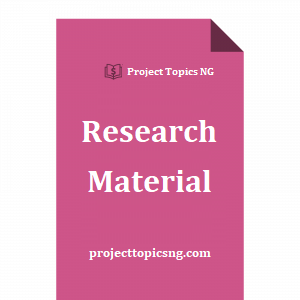Brief Introduction
Contemporary education is an indispensable asset and factor in the solution of the modern equations whether in terms of individual self-actualization, socio-economic needs, natural development, and consolidation or modification of the attitudes and behaviour of our children. But an education like other important human enterprises and human conditions stems from the fact that it provides a comprehensive interpretation of the fundamental issues and the events that are pertinent to them.
These philosophies are built around the teacher, environment, and the students who are the cardinal pillars or reasons behind its success. In the classroom, the teacher performs the very important functions of instructions and evaluation of the pupils, control of the class, creation of congenial atmosphere for learning, and motivating the children to learn.
Ukeje (1984) but outside the classroom the role changes and with the importance attached to each of the child’s functions in the classroom. He now performs consciously or unconsciously the important function of socializing the school and the community.
Madukwe (2008); has it that the teacher is expected to participate actively in the extracurricular activities of a varied and different set of situations. Onimode (2008) has it that even though, the teacher may enjoy the goodwill of the pupils/students, his relationship with the students where he is expected to be less disapproving, less authoritarian, less formal, more friendly, and accommodation may be appealing. Having gone through all these, we see that such human phenomenon no longer exists in Enugu state public schools and that is the reason why education viz – a – viz learning is foreseen to be relegated to the background.
Table of Content
Title page
Approval page
Certification
Acknowledgment
Table of Contents
Abstract
CHAPTER ONE
Background of the study
Statement of the problem
Significance of the study
Research question
Research hypothesis
Scope of the study
Limitations of the study
CHAPTER TWO
Literature Review
Introduction
The role of education ministry in a changing society
CHAPTER THREE
Research methodology
Sources of data
Primary sources of data
Secondary sources of data
The population of the study
Method of data collection
Questionnaire design distribution and collection of responses
Distribution and collection method
Method of data analysis
CHAPTER FOUR
Data presentation and analysis
Analysis of the research questions
CHAPTER FIVE
Summary of the findings
Conclusion of the findings
Recommendation of the findings
References
Appendix


